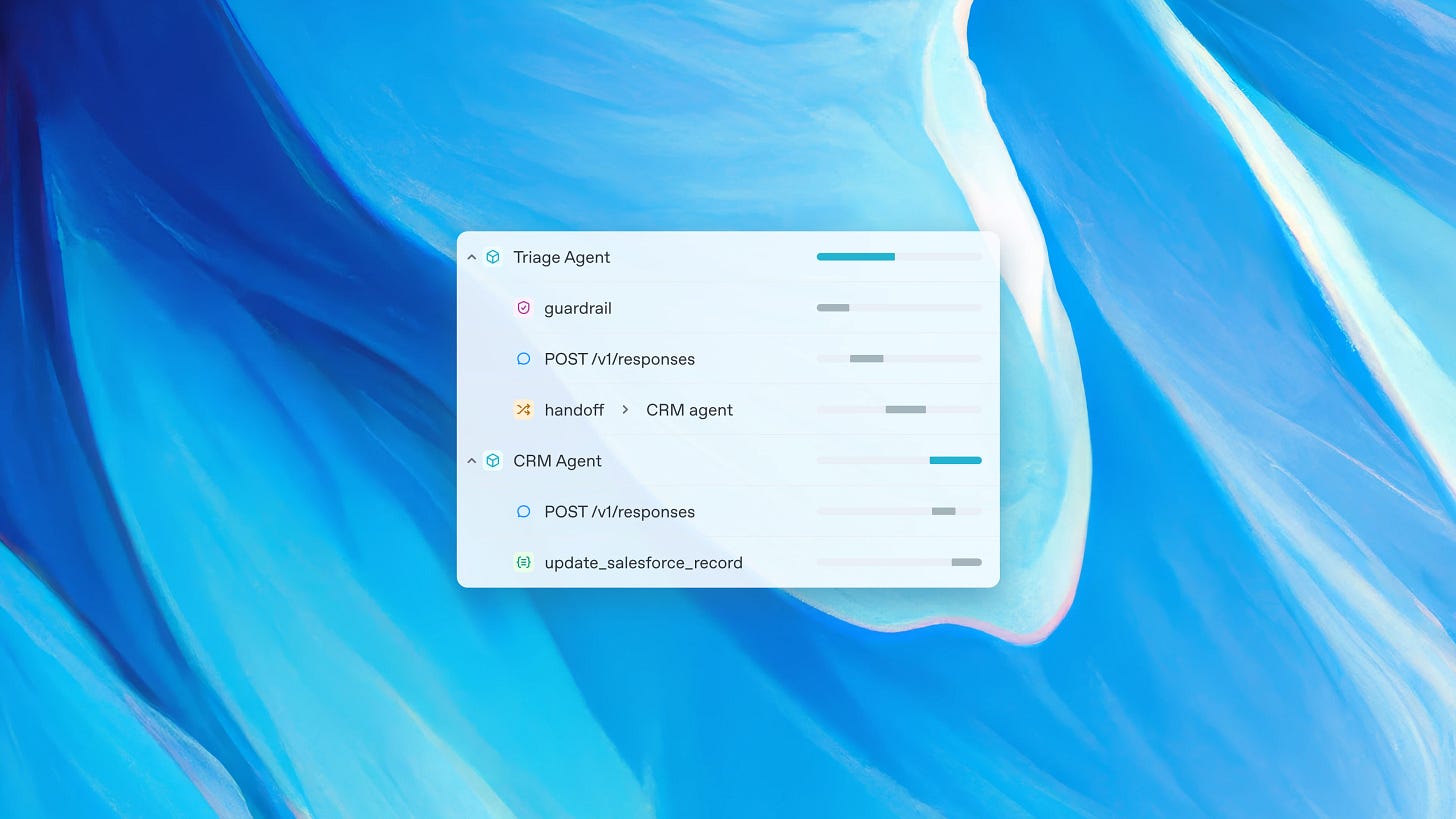OpenAI vs DeepSeek | Weekly Edition
PLUS HOT AI Tools & Tutorials
Hello and welcome to our weekly roundup!
While the entire AI community was immersed in MCP and vibe coding, OpenAI was proving that all's fair in love and war. This week, the company made an uncharacteristic statement and suggested that the U.S. government ban DeepSeek.
It seems the AI race is reaching a new level. Let's talk about it.
Speaking of Chinese AI models. Another important event of this month was the release of Manus. We covered it in this post:
This Creators’ AI Edition:
Featured Materials 🎟️
News of the week 🌍
Useful tools ⚒️
Weekly Guides 📕
AI Meme of the Week 🤡
AI Tweet of the Week 🐦
(Bonus) Materials 🎁
Your advertisement could be featured here!
Sponsor a spot in our newsletter to connect with subscribers interested in AI, technology, and startups. For inquiries, click the button below.
Featured Material 🎟️
OpenAI Urges U.S. Ban on DeepSeek
OpenAI has escalated its opposition to the Chinese AI startup DeepSeek by labeling its models "state-controlled" and urging the U.S. government to ban their use in critical applications. In a detailed policy letter submitted as part of the current administration's AI Action Plan, OpenAI's chief global affairs officer, Christopher Lehane, argued that DeepSeek’s approach poses national security risks.
Here's what you need to know:
Lehane emphasized that because DeepSeek is both state-subsidized and freely available, it could be compelled by Chinese authorities to manipulate its outputs and compromise sensitive information.
He also said that similar to previous restrictions imposed on Chinese tech firms like Huawei, such measures are critical to safeguarding U.S. intellectual property and maintaining the integrity of domestic AI infrastructure.
The letter outlines policy recommendations designed to protect American technological leadership. Among these, OpenAI calls for creating an export control strategy that would limit the use of models produced in China within Tier 1 countries, such as the United States.
In addition to calling for a ban on PRC-produced models, OpenAI also advocates for a collaborative approach between the government and private sector. It proposes that easing regulatory burdens on AI developers (while tightening controls on imported technologies) will foster an environment where innovation can flourish.
Keep your mailbox updated with key knowledge & news from the AI industry
Of course, OpenAI's announcement caused a tremendous amount of controversy. Some critics are sure the company is afraid of losing in the competition against Chinese developers. Others argue that DeepSeek poses a real threat.
And while I personally lean toward the first group, it is also possible to understand the second. The release of the latest DeepSeek model shook the industry. In one day, big tech lost over $1.5T!
OpenAI is not the only one that makes such suggestions.
A few days earlier, Anthropic founder Dario Amodei urged the US government to fight Chinese companies that want to steal the secrets of AI companies. Speaking at a Council on Foreign Relations event, he said that a few lines of code, which hides the algorithm's secret, could be worth $100 million.
However, Sam Altman's company may get the desired result given the trade war and the close relationship between the government and OpenAI over the Stargate project.
If anything changes, we'll let you know.
Incidentally, our comparison of OpenAI's o3-mini and DeepSeek R1 showed that perhaps OpenAI and Anthropic shouldn’t worry (at least, for now). Within the series of tests, the American model showed a little better.
News Of The Week 🌍
OpenAI Introduces Tools for Crafting AI Agents
OpenAI wasn't just promoting the DeepSeek ban this week. The company also released a new set of tools for those who want to create new AI agents. With the new OpenAI Responses API, companies can build platforms that can perform web searches, scan files, and navigate websites.
Technically, OpenAI makes it possible for others to create an Operator competitor. You can try out the new tools on Playground.
Google Unveils Gemma 3 Model
Google has introduced Gemma 3, the latest model in its open Gemma series. This platform, designed to run on a single Nvidia GPU, delivers impressive text, image, and short video analysis performance. Gemma 3 comes with an enhanced vision encoder that supports high-resolution and non-square photos, and it includes the new ShieldGemma 2 image safety classifier to filter explicit content.
According to Google's release, Gemma 3 outperforms competitors like Facebook’s Llama and OpenAI models on single-accelerator setups.
Sharing is caring! Refer someone who recently started a learning journey in AI. Make them more productive and earn rewards!
DeepMind Rolls Out Robot Control Platform
Google DeepMind has revealed new AI models for robot control. The models allow robots to perform physical tasks with minimal preparation. According to the TechCrunch report, the system uses strong perception combined with clear decision steps to help robots navigate complex spaces, move objects accurately, and react to sudden changes.
These models promise a practical solution for sectors such as manufacturing and logistics.
Snap Debuts AI Video Lenses with In-House Model
Snap has introduced AI video lenses powered by its in-house generative model, according to TechCrunch. These new video lenses add creative effects to user videos by applying unique visual transformations in real time. Snap's model produces personalized enhancements that previously required manual edits, and it supports a range of novel visual effects across the platform.
Well, it seems we just got a new player on the video generation market. That’s nice.
Alibaba Shows AI Model That “Reads Emotions”
Alibaba has unveiled its new open-source AI model, R1-Omni, which is designed to detect human emotions from video footage while also describing details like clothing and surroundings. Developed by Tongyi Lab, R1-Omni builds on an earlier model called HumanOmni and offers an extra layer of insight to computer vision by interpreting facial expressions and body language.
The model is available for free on Hugging Face.
Useful Tools ⚒️
Reworkd - Extract web data at scale without any code
Eraser AI - Codebase diagrams that update themselves
Freepik AI Video Upscaler - Upscale videos up to 4K in one click
AnyStory - Your Cursor for writing
Browser Use - Viral AI agent that works for you
At first, I was going to cover Browse Use as a news item, but then I realized we had an excellent place for it. This tool has made a lot of noise amidst the hype around Manus. Daily downloads have more than quintupled in just a week from about 5,000 to 28,000.
Like Manus, Browser Use lets you control your browser via a chatbot. The AI can manage multiple tabs, customize actions such as saving files and performing database operations, and handle mouse and keyboard input.
That said, it's an open-source platform. So you can try it out for free via GitHub.
Share this post with friends, especially those interested in AI stories!
Weekly Guides 📕
An opinionated guide on which AI model to use in 2025
Everything you need to know about MCP
How to spot a rocketship startup in AI
A Practical Guide to Running Local LLMs
AI Meme Of The Week 🤡
Don't miss step five! (all five of them)
AI Tweet Of The Week
Set reminders. Let's check out Anthropic's forecast.
(Bonus) Materials 🏆
AI Search Has A Citation Problem
The Future of U.S. AI Leadership with CEO of Anthropic Dario Amodei
GPT-4.5 = Big Model Energy | YC Decoded
Microsoft’s AI Guru Wants Independence From OpenAI
Researchers Propose a Better Way to Report Dangerous AI Flaws
Share this edition with your friends!












